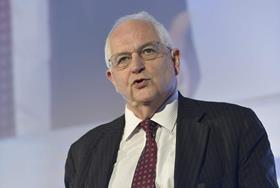
The consumer goods industry must combat the threat that populism poses to open trade and collaboration, the Financial Times’ chief economics commentator has warned.
Populism “remains one of the greatest challenges… to the survival of our civilisation,” Martin Wolf told representatives from some of the world’s biggest consumer goods companies at the Consumer Goods Forum Global Summit in Berlin.
In his view, a spike in populism has the potential to destroy the world’s “open cooperative world order” through a dangerous combination of xenophobia, protectionism – as we have seen from Donald Trump, and fiscal irresponsibility – as we witnessed during the 2008 financial crisis.
A powerful mix of de-industrialisation, globalisation, mass immigration, high and rising inequality, financial crises, unemployment and stagnant real incomes – a particular risk to consumer goods producers and retailers – has fuelled an increase in populism across the western world in recent years, Wolf told delegates.
And the fact that nobody seemed to be punished in the wake of the global financial crisis was, according to the economist, a “very significant factor” in the upsurge of populist rage – particularly in the UK and the US, which turned to Brexit and Trump respectively.
“It is not an accident, in my view, that the US and the UK – the centres of the global financial system – have been so plagued by populism, from both left and right, since then,” Wolf said.
It is now the responsibility of both governments and big businesses to strive for open collaboration, to resist protectionism, and to reject xenophobia, Wolf said – a prescient message with Brexit negotiations getting under way in Brussels this week.
“Populism made huge advances in the US and UK and several other countries “because of the combination of high inequality, massive financial crisis, stagnant incomes, large-scale immigration – particularly in the UK, and prolonged austerity,” Wolf noted.
He added that it was unclear whether it has reached its peak or whether “the damage it has done, or perhaps a strong economic recovery, might now halt its advance”.



